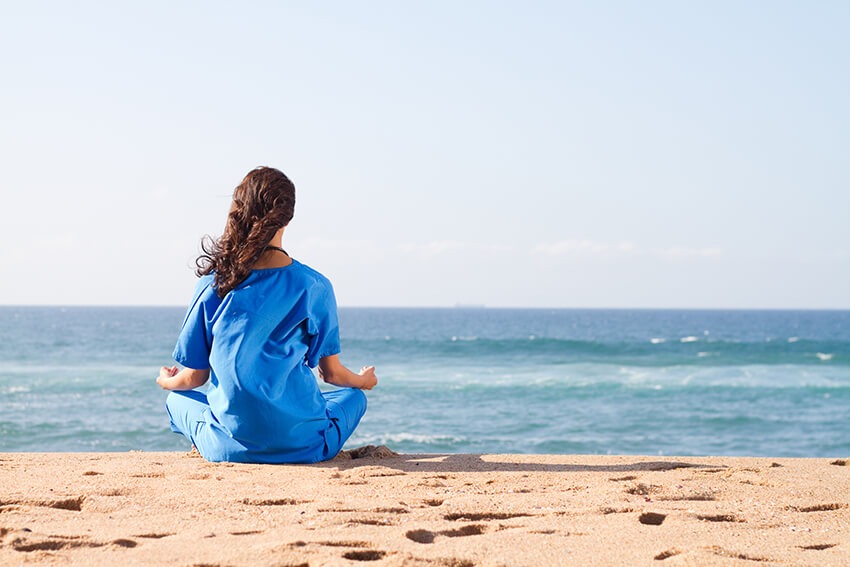A Nurses Guide to Self Care: 6 Quick Tips
By: American Nurses Association
Do you recognize yourself in this statement? “I don’t have time to take care of me, because I’m too busy taking care of everyone else.”
If you said yes, you are definitely in a large company of other nurses and caregivers. (I’m not sure that I can say that you are in good company though!) We tend to give and give, and feel selfish taking. Even just taking care of ourselves.
Truth is, you are too valuable to NOT take care of yourself.
Remember the first rule of providing First Aid? “Don’t become the second victim.” As a CPR/First Aid instructor, I stress this principle in my courses, because I teach caring people who have a hard time realizing that sacrificing themselves is not always the most loving thing to do.
But how? How do I take care of myself? I can’t get into bubble baths and cocktails!
And that’s totally fine. True self care doesn’t really look like bubble baths and cocktails, despite the popular imagery. True self care often looks like discipline, doing things that aren’t fun in the short term to get the long term benefits.
Here are a few ways to take care of the caregiver.
- Take a lunch break. I said it. Eat your lunch sitting down, with your pager turned off and in a location where the unit secretary can’t poke their head in to get you for an urgent phone call. Like, really, truly take your lunch break. Nurses who take lunch breaks work better and last longer. It’s that simple.
- Or run or jog or lift weights. Whatever kind of physical activity that gets your heart rate up and that you enjoy doing. Do it regularly and often. This is the one thing that all health professionals can agree on; movement matters for health.
- Drink water. This particular self care habit is even harder right now with the mandatory mask wearing, which makes it even more important to make drinking water a priority. Do whatever it takes. (I can’t tell you to break unit rules to have a water bottle at your desk or computer. Or to wear a water bladder under your scrubs. Or sew a straw into your mask…)
- Establish a consistent bedtime with good sleep hygiene. Screens off at least half an hour before bed. A dark bedroom. White noise. Melatonin. You know the drill. Just do it.
- Practice mindfulness. This doesn’t need to be yoga or any fancy meditation practice. Mindfulness means to purposefully pay attention in the present moment with a sense of acceptance and nonjudgment. It can be as simple as taking a deep breath, then noticing and releasing the tension in your shoulders. Try it right now, in fact. Feels good, doesn’t it?
- Self-Care and You. This easy-read book applies an integrated approach to the practice of self-care. Its a handy guide that’s organized in six self-care pathways and loaded with detailed examples, guidelines, tips, techniques, and insights about each pathway to help you assess and guide your lifelong journey to self-care! Order today!
Nurses are the consummate caregivers, often sacrificing their own health and wellness while taking care of others. Self-care means choosing behaviors to counter emotional and physical stress, from exercise and nutritious eating to practicing self-centering activities. Given the emotional stress and strains inherent in your profession, it is important that you make self-care a priority. It is vital to your well-being and enables you to effectively continue your day-to-day practice of healing and caring for others.
Here’s an additional resource to empower you on your journey to true self care:
https://www.nursingworld.org/nurses-books/mindfulness-and-you-being-present-innursing-practice/



Sorry, the comment form is closed at this time.